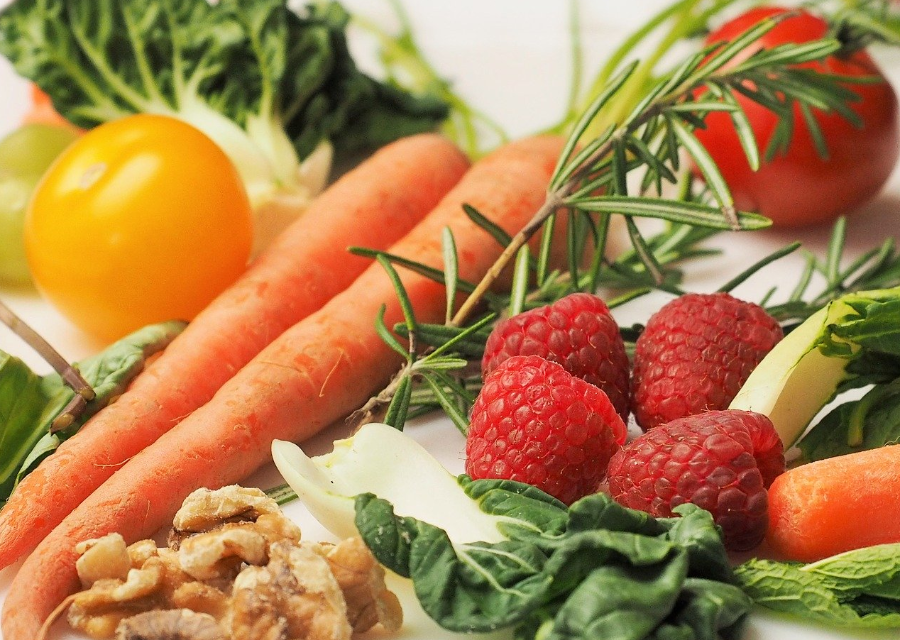What exactly is a plant-based diet?
It is a diet which focuses on eating food primarily from plants. This means focusing on eating fruits, vegetables, nuts, seeds, oils, grains, legumes and beans. A strictly plant-based diet is technically vegan, as it does not include animal or dairy products, but those who are just starting out should just focus on incorporating more plants into their diet than committing to becoming a vegan. Often committing to a strict diet can be a daunting prospect – that’s why we recommend making some changes to gradually transition to a plant-based diet.
The benefits of a plant-based diet are clear – not only is it great for your health and good for the environment, but you can also save a lot of money by cutting out meat and dairy products. It is estimated that Brits spend £650 a year on meat. Moving away
from meat-based dishes allows you to become more adventurous and experimental
in the kitchen.
Here are some simple switches to help start your plant-based journey
and save money on the way!
Buy lots of non-perishables:
Foods such as tinned tomatoes, canned
beans, dry lentils, and tinned coconut milk all go a long way and last for a
long time. This kind of food is the basis for a lot of plant-based dishes. Tinned food can cost as little as 20p in some shops!
Buy frozen fruit and vegetables:
These are a more affordable
alternative to buying fresh. Plant-based dishes, such as curries, stews and chillis, rely heavily on vegetables. Frozen vegetables can taste just as good
when they are cooked well! We recommend frozen broccoli, peas, carrots, green beans and sweetcorn as they do not lose their flavour. Frozen fruit, especially raspberries and blackberries, is far cheaper
than fresh fruit and tastes delicious in smoothies or stirred into porridge.
Buy long-lasting vegetables:
Vegetables such as celery, sweet
potatoes, onions, carrots, courgettes and cauliflower all last for a
long time and can be used in lots of different dishes.
Avoid vegan/plant-based processed products:
Whilst these products
have made it far easier for people to follow a plant-based diet – and are great
for a treat – they’re usually expensive, and full of unhealthy
additives. Instead of buying a Beyond Burger, try making your own
spicy bean
burgers!
Switch from cow’s milk to plant-based alternatives:
There are so many different types out there – oat, soy, almond, cashew, hazelnut and many more! It’s also important to remember that they have a much longer shelf life than cow’s milk! These are usually slightly more expensive than cow’s milk, but only by about 50-70p. With the money you can save elsewhere, you will barely notice this switch.
Get your protein from beans, grains, pulses, and legumes rather than
meat, seafood and dairy. These are natural sources of protein – 1kg of lentils can cost as little as £1.50!
Invest in some spices:
Starting a plant-based diet means that it is
easier to become more adventurous. For example, rather than buying pre-made pasta sauces, try adding spices to canned tomatoes and see which ones you like! Once you have these in your kitchen, they will last a long time, and it’ll save you money.
Buy tofu and tempeh:
These are great sources of protein and only cost
approximately £2 a pack. This can last you for about 4 meals, whereas £2 worth
of meat can only last you for about one meal.
Buy in bulk:
Grains, pulses, legumes, and seeds can easily be bought in bulk
which will save you money in the long run. Examples of these would be oats,
lentils, rice, quinoa, chickpeas.
Batch cook:
Lots of plant-based recipes, such as soups, stews and curries, all freeze and keep extremely well. If you have any leftovers, freeze them for later in the week or next week! This will save you money and cut down your waste.
Plant-based switches should not be restrictive. Switching to a plant-based diet allows us to become more adventurous in the kitchen and try out lots of new tasty recipes.
